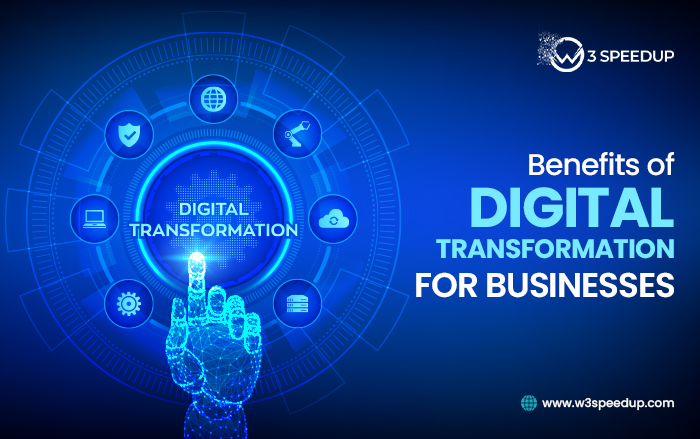Digital transformation is when a business embraces technology from top to bottom. Rather than playing a small part in the organization, technology is embedded everywhere so the business can become truly digital. This is something that countless businesses have done or are currently in the process of doing, as research from Gartner reveals that 91% of businesses are now engaged in a digital initiative — which is very exciting. Now that you know this, it’s important that your business joins the digital revolution, too. Otherwise, you’ll get left behind.
So, what are the five main benefits of digital transformation for businesses? Find out below.
1. Stronger Security
After undergoing a digital transformation, you’ll be able to experience stronger security. This is incredibly important in an age where thousands of cyberattacks happen every single day and untold amounts of money and data get stolen.
For example, a big trend at the moment is IoT Security. This is when a business secures all its internet devices, from networked security cameras to office gadgets, against potential threats and cyberattacks. It’s a no-brainer, as it ultimately ensures that your employees and customers are better protected.
Currently, your business probably has a ton of devices connected to your network, such as smart lights or printers, which are actually vulnerable to being hacked. However, through a proper digital transformation, where you implement IoT security and other cybersecurity methods, you turn your business into a solid wall that no cybercriminal can get past.
2. A Reduction in Costs
It’s no secret that the global economy isn’t great right now. Inflation is running wild, and many businesses are struggling, which is why management teams are running around the office trying to figure out ways to cut costs.
Here’s the good news: digital transformations have been proven to reduce costs and save businesses a lot of money in the process. This applies to big global names and even small start-ups with very limited resources.
Here’s an example of how this works: AI-powered customer service. Over the past few years, “traditional” customer service (such as telephone conversations) has become dated. As a result, AI-powered customer service has taken over. You see this today through website customer service chatbots, which enable businesses to provide customer service without real human employees.
You’re also starting to see this in construction and manufacturing, where AI is essentially filling in where humans once had to do the work. Moving into the future, it’s going to be a big part of most major industries, which is why you should embrace it with open arms and save as much money as you possibly can!
3. Remote Work

Do you want to allow some of your employees to work from home? If the answer is yes, you’ll only be able to do this through digital transformation.
Remote work requires lots of different digital tools, such as:
-
- Cloud-based collaboration apps (Microsoft 365, OneDrive, Google Meet)
- Employee monitoring software
- Screen-sharing software
To put it simply, you can’t just allow your employees to work from home in 2023 with no digital tools, as it just won’t work! Instead, your business needs to be digitally competent and capable of handling the tech demands that come with remote work. This way, you can make your remote work model a success.
4. Limit Human Errors
There are now thousands of digital tools out there that businesses can use to reduce (or completely eliminate) human errors.
When you go digital, there’s less need for manual data entry and other time-consuming tasks that human employees have traditionally had to do. For example, rather than an accountant doing everything by hand, they can instead use accounting software that automates a large bulk of the work for them. In turn, this reduces human error while guaranteeing that the financial side of things is taken care of. Pretty great, right?
If you’re a business that seems to struggle a lot with human errors, then it’s definitely worth undergoing a digital transformation so that you can get the problem under control. By providing employees with the right digital tools (such as the above-mentioned accounting software), it can genuinely boost productivity and keep those frustrating human errors to a minimum.
5. Better Data Collection and Analysis
It’s probably true that your business has bundles of customer data just sitting there doing nothing. If so, this is something that needs to change, as modern business is all about collecting and analyzing data that you can use to make improvements.
After undergoing a digital transformation, you’ll be able to identify interesting trends from your customer data (e.g., customers want lower delivery costs) and quickly take action. This will then lead to happier customers, more sales, and stronger company growth.
Python and Attest are just some of the latest customer insight software tools that you can use to start your journey. Soon, you’ll wonder how your business ever survived without them.



